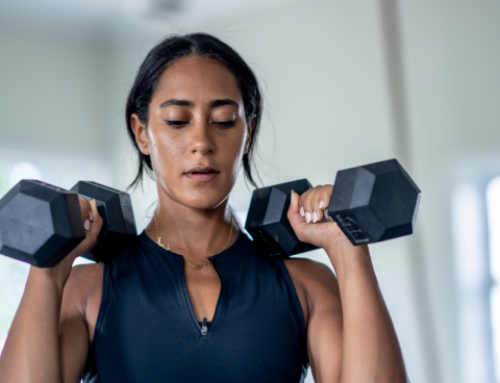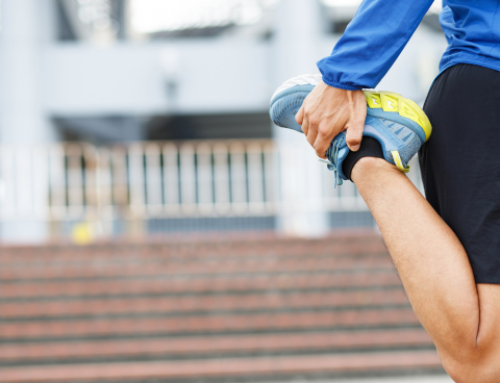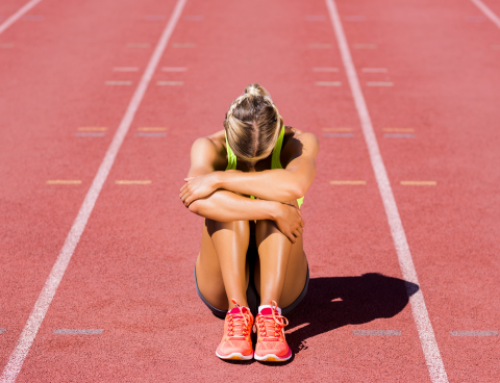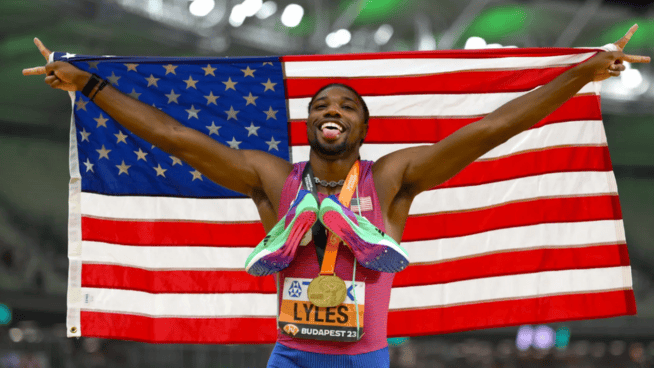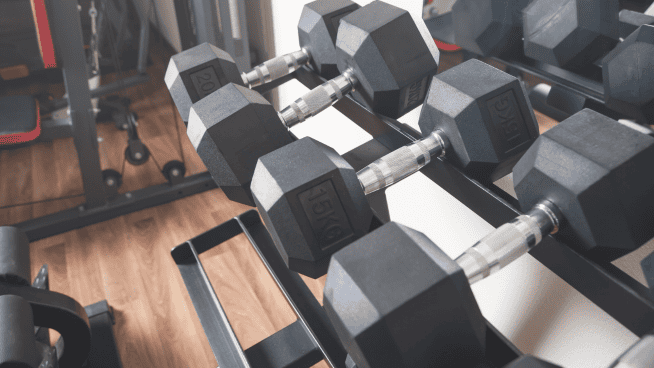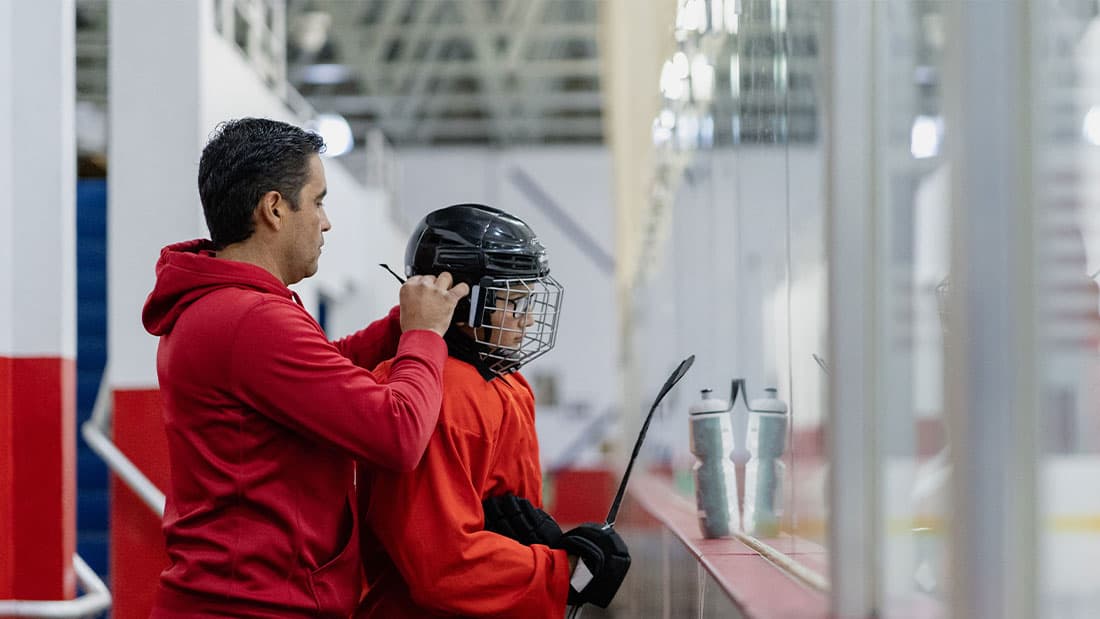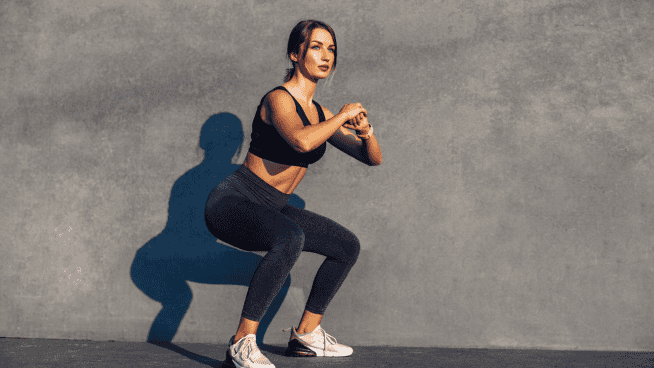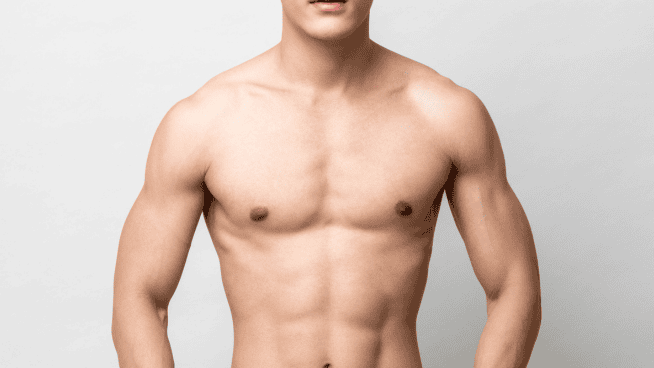How To Overcome Anxiety As An Athlete
Whether in front of a 20,000 sold-out crowd at Staples Center or a pick-up basketball game at the local YMCA, from professional athletes to those in high school and below, all individuals may deal with some form of anxiety.
Otherwise known as “butterflies” in the stomach, the intensity of those feelings may range.
But it shouldn’t stop anyone from having success, on or off the field.
Research (science) exists to show that there are reliable tips and strategies all athletes or their coaches should use to help relieve symptoms.
How does an athlete deal with anxiety?
First, acknowledge it exists.
What Is Performance-Related Anxiety?
Symptoms for anxiety in athletes could be identified as any of the following:
- Increased heart rate
- Fast breathing
- Sweaty palms
- Trembling body
- Shaky voice
Any individual may experience symptoms from time to time, but for athletes with diagnosable anxiety, these occurrences happen frequently and at levels severe enough to inhibit performance at their sport.
Causes (stressors) for athletes range as much as the research does, including:
- Fear of failure
- Fear of injury
- Return from injury
- Intimidation (ex. Opponents, teammates, coaches)
- Perfectionism
Any athlete returning from injury could feel anxious from their desire to reach a certain level of form they held pre-injury, or for others, anxiety might exist in their minds attached to thoughts about the risk of re-injury.
With perfectionism, making a single mistake in practice or in competition may trigger an athlete to be overly self-critical and to feel anxious.
You Are Not Alone
A 2019 study states that up to 25 percent of teenagers may suffer from anxiety around the world. The same study adds it’s better to relieve anxiety in the presence of others (social interaction) than to be alone.
And even the most successful professional athletes have shared their mental health ordeals with the public in recent years.
NBA champion Kevin Love currently plays for the Cleveland Cavaliers, admitting to the Players’ Tribune in March of 2018 to having his own bouts of panic attacks, depression, and anxiety throughout his career.
Professional tennis player and two-time major champion Naomi Osaka recently withdrew from the 2021 French Open. Osaka declined to fulfill her press obligations out of concern for her mental health, leaving the tournament because of the backlash surrounding her refusal.
Osaka shared this via Instagram: “The truth is that I have suffered long bouts of depression since the US Open in 2018 and I have had a really hard time coping with that.”
Swimmer Michael Phelps, the most decorated Olympic gold medalist in American history (23), told ESPN in May of 2020 that he struggles like Love and Osaka do, even in retirement.
“There are a ton of people fighting the exact same thing,” Phelps said. “You just need to learn the tricks that work for you and then stick with them, believe in them, to keep yourself from getting into a negative cycle.”
Best Practices
Consultations with a medical professional (ex. Sports psychologist) may be the best route to take for any athlete who believes they are struggling mental-health-wise, whether it’d be anxiety or something else.
That being said, individuals could adopt any of the following practices to help ease their symptoms:
- Remember to breath; consider deep breathing exercise
- Be mindful of lifestyle (ex. Diet, sleep patterns)
- Practice, consistently train to build confidence
- Avoid self-isolation, find social support
- Stay positive, avoid negative thoughts
There is not an overnight cure to performance-related anxiety. It requires acknowledgment, first. To treat the symptoms, all athletes must adopt a plan of action and adhere to it consistently.
The content of the web pages in our Mental Health section is provided for general information only. They are not intended to, and do not, amount to advice which you should rely on. They are not in any way an alternative to specific advice.
If you or a loved one is struggling with Mental Health please call 911 and reach out to a medical professional or SAMHSA’s National Helpline is a free, confidential, 24/7, 365-day-a-year treatment referral and information service.
Please find more help at Seize the Awkward.
Read More:
- How to Manage Student-Athlete Stress
- 5 Ways Young Athletes Can Reduce Stress and Anxiety
- 3 Strategies to Reduce Stress and Increase Athletic Performance
RECOMMENDED FOR YOU
MOST POPULAR
How To Overcome Anxiety As An Athlete
Whether in front of a 20,000 sold-out crowd at Staples Center or a pick-up basketball game at the local YMCA, from professional athletes to those in high school and below, all individuals may deal with some form of anxiety.
Otherwise known as “butterflies” in the stomach, the intensity of those feelings may range.
But it shouldn’t stop anyone from having success, on or off the field.
Research (science) exists to show that there are reliable tips and strategies all athletes or their coaches should use to help relieve symptoms.
How does an athlete deal with anxiety?
First, acknowledge it exists.
What Is Performance-Related Anxiety?
Symptoms for anxiety in athletes could be identified as any of the following:
- Increased heart rate
- Fast breathing
- Sweaty palms
- Trembling body
- Shaky voice
Any individual may experience symptoms from time to time, but for athletes with diagnosable anxiety, these occurrences happen frequently and at levels severe enough to inhibit performance at their sport.
Causes (stressors) for athletes range as much as the research does, including:
- Fear of failure
- Fear of injury
- Return from injury
- Intimidation (ex. Opponents, teammates, coaches)
- Perfectionism
Any athlete returning from injury could feel anxious from their desire to reach a certain level of form they held pre-injury, or for others, anxiety might exist in their minds attached to thoughts about the risk of re-injury.
With perfectionism, making a single mistake in practice or in competition may trigger an athlete to be overly self-critical and to feel anxious.
You Are Not Alone
A 2019 study states that up to 25 percent of teenagers may suffer from anxiety around the world. The same study adds it’s better to relieve anxiety in the presence of others (social interaction) than to be alone.
And even the most successful professional athletes have shared their mental health ordeals with the public in recent years.
NBA champion Kevin Love currently plays for the Cleveland Cavaliers, admitting to the Players’ Tribune in March of 2018 to having his own bouts of panic attacks, depression, and anxiety throughout his career.
Professional tennis player and two-time major champion Naomi Osaka recently withdrew from the 2021 French Open. Osaka declined to fulfill her press obligations out of concern for her mental health, leaving the tournament because of the backlash surrounding her refusal.
Osaka shared this via Instagram: “The truth is that I have suffered long bouts of depression since the US Open in 2018 and I have had a really hard time coping with that.”
Swimmer Michael Phelps, the most decorated Olympic gold medalist in American history (23), told ESPN in May of 2020 that he struggles like Love and Osaka do, even in retirement.
“There are a ton of people fighting the exact same thing,” Phelps said. “You just need to learn the tricks that work for you and then stick with them, believe in them, to keep yourself from getting into a negative cycle.”
Best Practices
Consultations with a medical professional (ex. Sports psychologist) may be the best route to take for any athlete who believes they are struggling mental-health-wise, whether it’d be anxiety or something else.
That being said, individuals could adopt any of the following practices to help ease their symptoms:
- Remember to breath; consider deep breathing exercise
- Be mindful of lifestyle (ex. Diet, sleep patterns)
- Practice, consistently train to build confidence
- Avoid self-isolation, find social support
- Stay positive, avoid negative thoughts
There is not an overnight cure to performance-related anxiety. It requires acknowledgment, first. To treat the symptoms, all athletes must adopt a plan of action and adhere to it consistently.
The content of the web pages in our Mental Health section is provided for general information only. They are not intended to, and do not, amount to advice which you should rely on. They are not in any way an alternative to specific advice.
If you or a loved one is struggling with Mental Health please call 911 and reach out to a medical professional or SAMHSA’s National Helpline is a free, confidential, 24/7, 365-day-a-year treatment referral and information service.
Please find more help at Seize the Awkward.
Read More:
- How to Manage Student-Athlete Stress
- 5 Ways Young Athletes Can Reduce Stress and Anxiety
- 3 Strategies to Reduce Stress and Increase Athletic Performance


